

Veylma Falaeo, President of the Congress of New Caledonia, echoes values of the republic: respect, equity and solidarity. Photo/
Photo/La Première
New Caledonia's Congress chief outlines vision for troubled French territory
Veylma Falaeo is facing significant challenges as she tries to bridge the divide amid civil unrest.

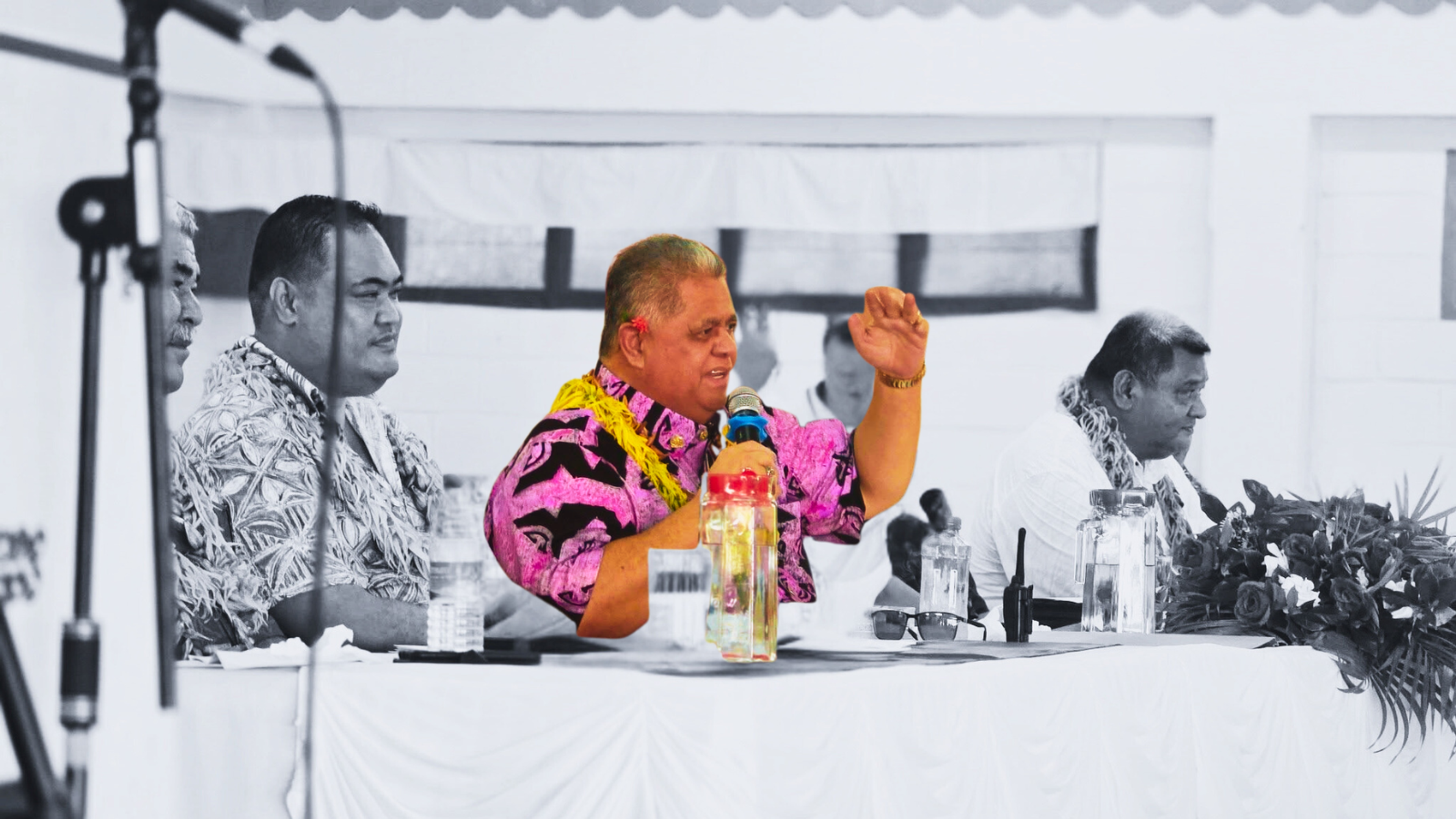

New Zealand-United States minerals talks spark concerns over Pacific seabed mining

From netball star to Matatū: Fia Laikong speaks on leap of faith



New Zealand-United States minerals talks spark concerns over Pacific seabed mining

From netball star to Matatū: Fia Laikong speaks on leap of faith
The President of New Caledonia’s Congress, Veylma Falaeo, has pledged to unite the territory and promote peace amid ongoing political instability and social unrest.
When she was elected in August, Falaeo made history as the first female head of the legislative assembly.
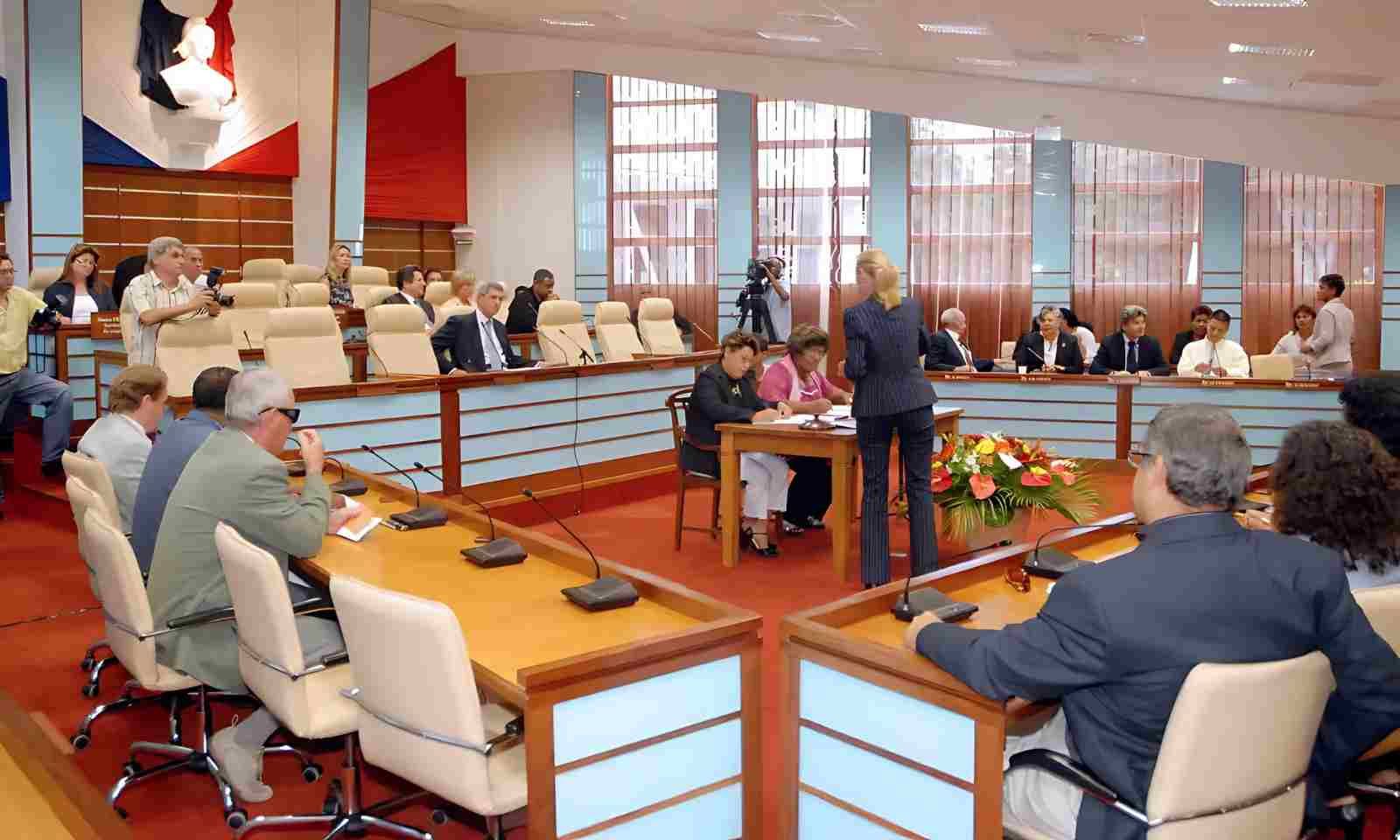
The New Caledonia Congress. Photo/Gouvernement de la Nouvelle-Calédonie
The 42-year-old's surprise election also came when the Pacific Island nation faced significant challenges.
Currently in New Zealand for a parliamentary conference, Falaeo communicated through French-speaking interpreters on Tuesday that she is committed to a balanced approach to governance.
Hailing from Wallis and Futuna, another French Pacific territory, she expressed her dedication to creating a more inclusive and representative congress.
“Our main concern is to improve the daily life of New Caledonians and to work on reforms for the Oceanian people, and we want to work on reforms and political reforms. In particular, to reduce social inequalities,” she said.
Falaeo highlighted the importance of involving various organisations and NGOs in shaping the country’s future.
“With this spirit, this idea of unity in mind, I think it's important for us to create a space for these people within the Congress because I think it's by drawing from this contribution that we will succeed.”
Established in 1999, the New Caledonian Congress governs health, taxation, infrastructure, welfare, and education issues.
The legislative assembly consists of 54 councillors elected every five years, with the president chosen annually.
Falaeo’s appointment also comes during civil unrest in Noumēa, heightened by tensions between pro-independence factions and the French government.
In May, violent protests erupted in the capital as supporters of independence rejected French President Emmanuel Macron’s proposal to change the electoral rules in New Caledonia.
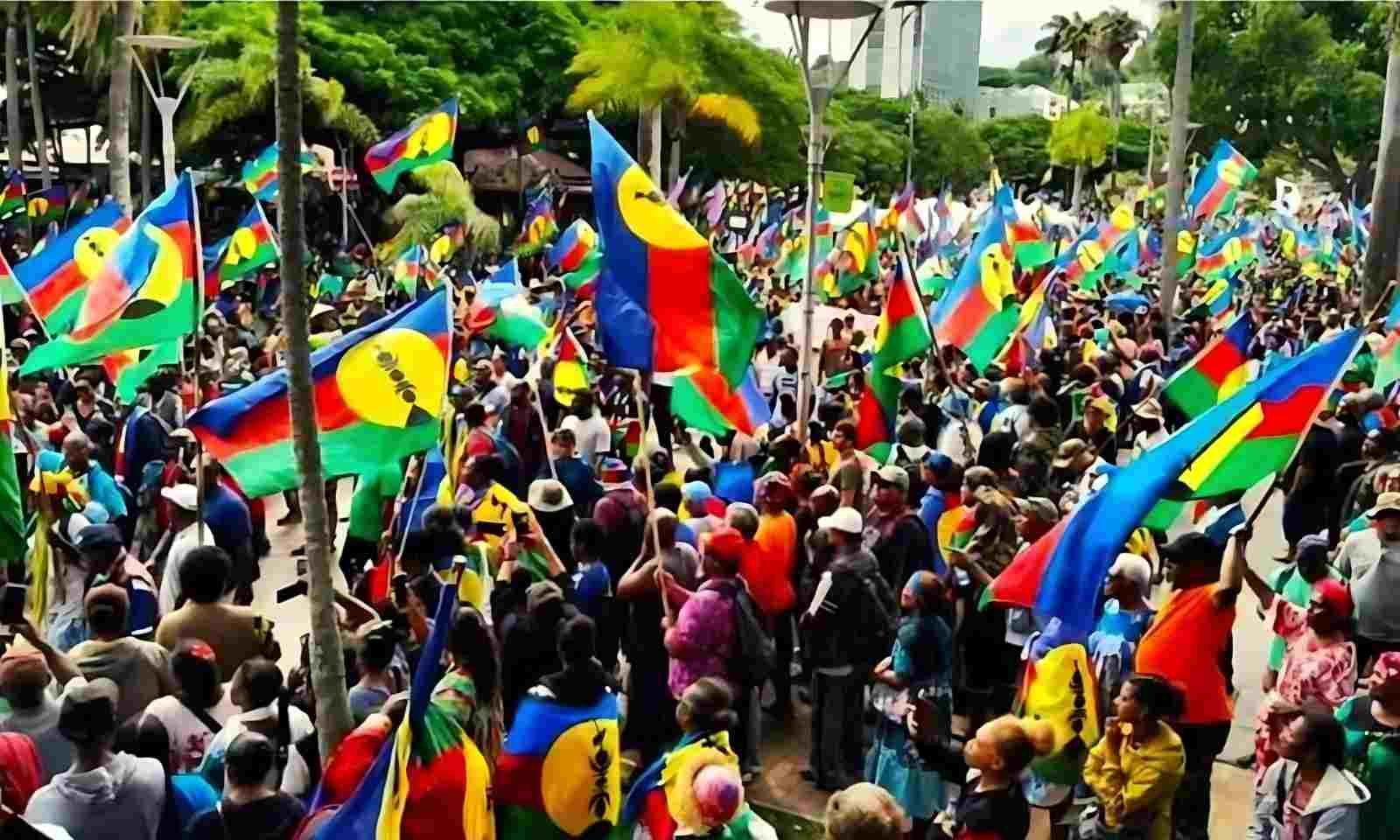
Pro-independence supporters hold a rally in Noumēa. Photo/FLNKS
The protests resulted in 13 deaths, hundreds of arrests, and significant damage to property and businesses, leading to thousands of job losses.
Many Kanaks are concerned that Paris’ proposed reforms could undermine their political influence and aspirations for independence.
Falaeo estimated that rebuilding the capital and revitalising the economy could reach FR$100 billion, emphasising the critical consequences of the unrest on various aspects of society.
She said the crisis created a rift between citizens and elected officials in Congress.
“So the crisis that occurred on the 13th of May had a lot of negative impacts. We're talking about the economy. We're talking about social aspects. We're talking about human factors. So that was critical. So, 2.2 billion was the amount of damage that was caused as a result.
“May 13 created a gap between the citizens and the elected members of Congress - that the events of the 13th of May have opened a gap between the population and the MPs.
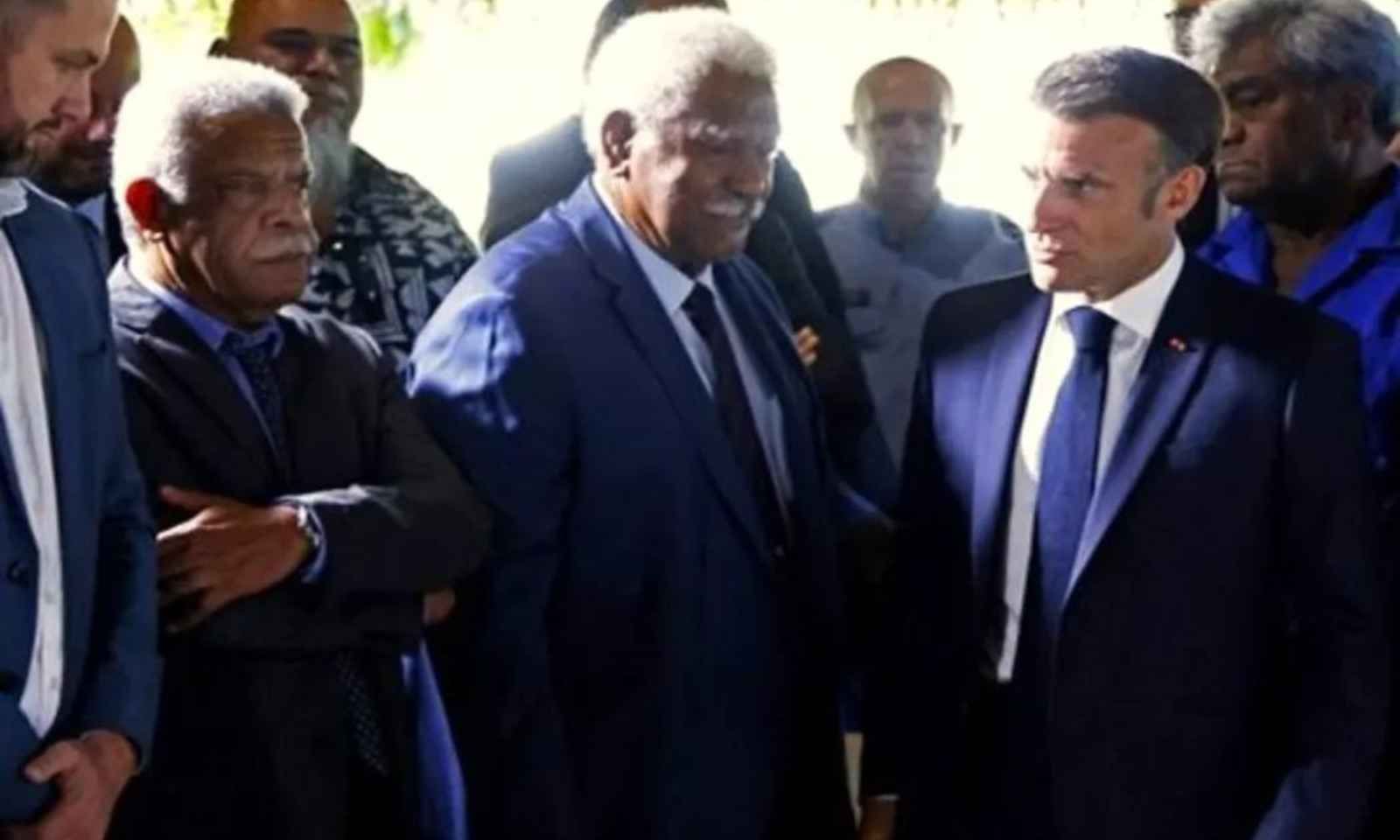
French President Emmanuel Macron, right, meets New Caledonia officials following the deadly riots in May. Photo/supplied
“I think only time can help us, the time to rebuild trust. And especially in our homes. The Caledonian people have shown a lot of resilience, and I put my hope in that.
“So, there have been many issues, and today everybody has lots of scars. But only time will help to heal these scars. And our job, our task today, is to rebuild confidence.”
While Macon has suspended the proposed reforms, Falaeo is poised to bring a fresh perspective to a congress that pro-independence leaders have led for the past five years.
She narrowly defeated Roch Wamytan, the first Kanak congress president, by a vote of 28-26.
Wamytan is a vocal critic of France’s management of New Caledonia and represents the pro-independence FLNKS Party.
Falaeo, a moderate candidate from the Ocean Awakening Party, says they are independent of the traditional factions in the conflict.
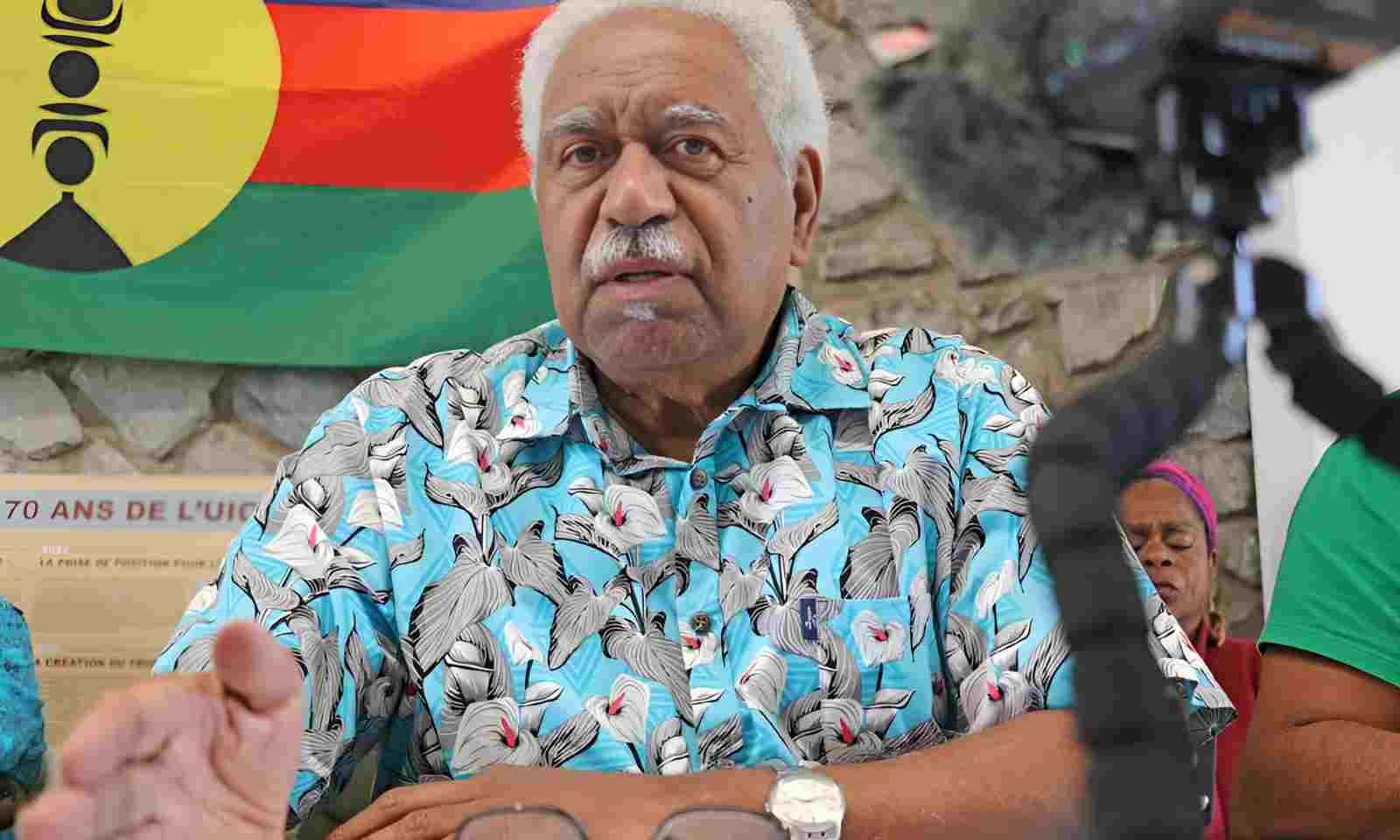
Former congress president Roch Wamytan, of the pro-independence FLNKS party, is a prominent critic of France’s management of New Caledonia. Photo/Demain en Nouvelle-Calēdonie
"We have been nicknamed the makers of democracy, the kings, because we can switch the majority on one side like the other.
While acknowledging support from anti-independence groups, she said, “We are not aligned with either side regarding the independence debate.
“We are completely separated from the political issues of whether people are for or against independence,” she said.
When asked about her stance on self-rule for the Indigenous Kanaks, Falaeo maintained a neutral position, focussing instead on the values of respect, equity, and solidarity that define the republic.
Falaeo emphasised her intention to maintain open communication with all the parties, adding that she would foster dialogue.
“We, too, are very critical about how the French state has managed the New Caledonian situation. I am for New Caledonia. I love my country. I want us to find the right way to ensure serenity and peace for all.
“There is no break with the independentists. I am here to talk to each other. I want the best outcome, which means peace for all and serenity for all. I didn't break away from the independentist movement. I'm here for everyone.”
Meanwhile, the presidents of France's Upper and Lower Houses of Parliament visited Noumēa two weeks ago for a three-day "concertation and dialogue," during which they reportedly repeatedly referred to "shared sovereignty" regarding the Pacific archipelago's future relationship with Paris.
The French National Assembly and Senate presidents, Yaël Braun-Pivet and Gérard Larcher, met and discussed issues with a wide range of stakeholders in politics, economy, the private sector, health, education, law and order, and associations.
Talks were also held for hours but behind closed doors, with all political parties, both for and against independence, represented at the local congress.
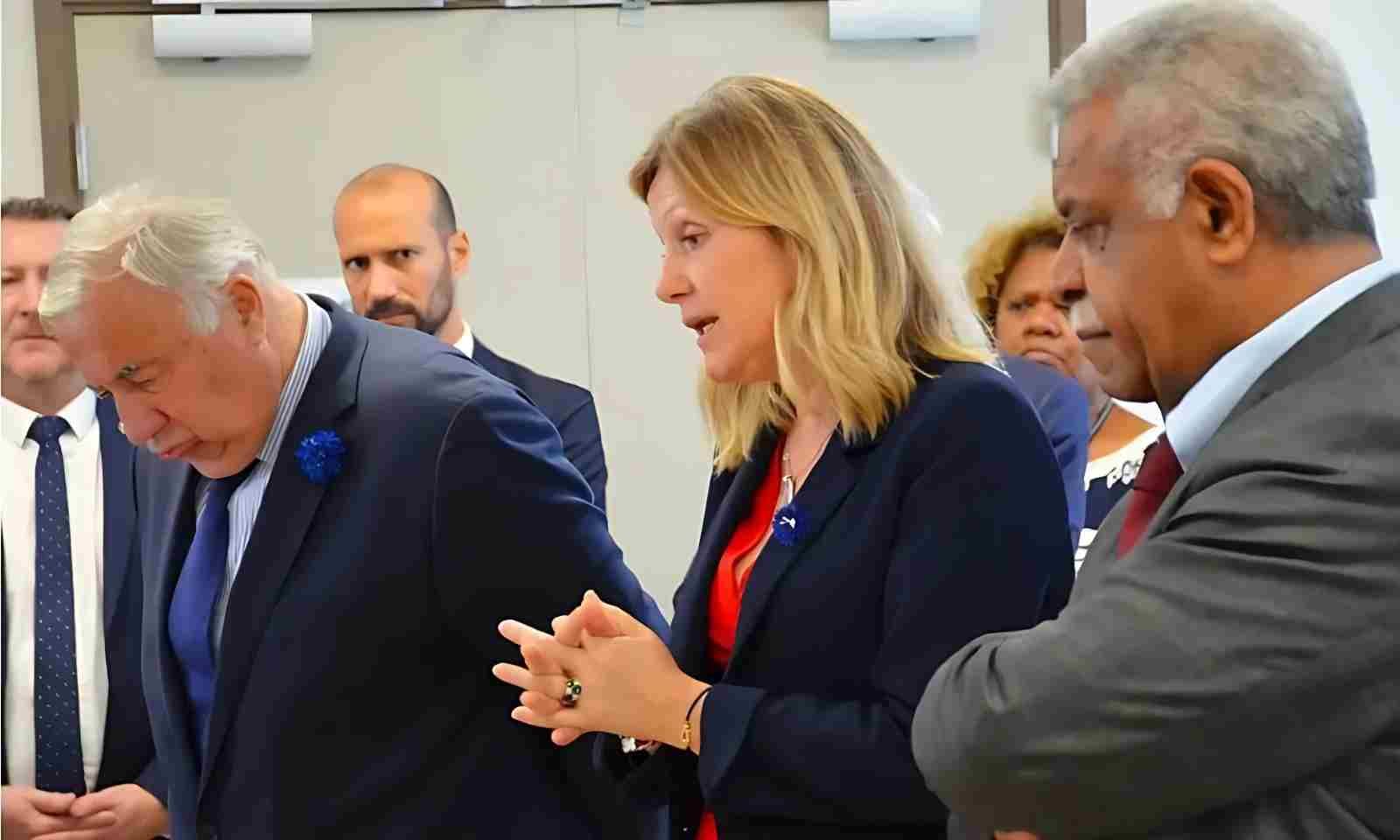
From left, Gérard Larcher, Yaël Braun-Pivet, and New Caledonia President Louis Mapou in Noumēa on 11 November 2024. Photo/Gouvernement de la Nouvelle-Calédonie